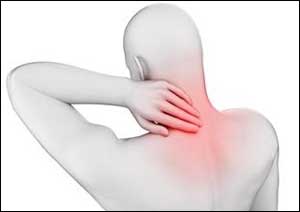- Home
- Editorial
- News
- Practice Guidelines
- Anesthesiology Guidelines
- Cancer Guidelines
- Cardiac Sciences Guidelines
- Critical Care Guidelines
- Dentistry Guidelines
- Dermatology Guidelines
- Diabetes and Endo Guidelines
- Diagnostics Guidelines
- ENT Guidelines
- Featured Practice Guidelines
- Gastroenterology Guidelines
- Geriatrics Guidelines
- Medicine Guidelines
- Nephrology Guidelines
- Neurosciences Guidelines
- Obs and Gynae Guidelines
- Ophthalmology Guidelines
- Orthopaedics Guidelines
- Paediatrics Guidelines
- Psychiatry Guidelines
- Pulmonology Guidelines
- Radiology Guidelines
- Surgery Guidelines
- Urology Guidelines
Chinese massage an effective treatment for chronic neck pain

A new study evaluating a form of Chinese massage, tuina, in patients with chronic neck pain found it to be effective, safe, and cost-effective compared to no treatment. The study, which assessed the intensity of neck pain, disability, health-related quality of life, medication use, and cost, is published in The Journal of Alternative and Complementary Medicine (JACM), a peer-reviewed publication from Mary Ann Liebert, Inc., publishers. The article is available free on JACM website.
One of the top researchers in complementary and integrative medicine globally, Claudia Witt, Dr. med., MD, MBA, Charité - Universitätsmedizin Berlin (Germany), University of Zurich and University Hospital Zurich (Switzerland), and University of Maryland School of Medicine (Baltimore, MD) and colleagues from Charité - Universitätsmedizin Berlin and Tianjin University of Traditional Chinese Medicine (China) coauthored the article entitled "Effectiveness and Cost-Effectiveness of Tuina for Chronic Neck Pain: A Randomized Controlled Trial Comparing Tuina with a No-Intervention Waiting List."
Patients with chronic neck pain were randomly assigned to receive either no treatment or six sessions of tuina over 3 weeks, a therapeutic approach that involves manual manipulation of the soft tissue and backbone using mainly stroking, kneading, and drumming techniques. The researchers reported a clinically relevant decrease in mean neck pain intensity and improved function and physical quality of life among the group that received tuina. Based on the differences between the two groups, tuina treatment appeared to be relatively cost-effective.
Said Dr. Witt: "The results are promising and call for further research on tuina."
"The value found for tuina in this study has an additional implication," says JACM Editor-in-Chief John Weeks, johnweeks-integrator.com, Seattle, WA. He adds: "Inclusion in payment and delivery programs of Traditional Chinese Medicine practitioners who are trained in tuina may offer a one-two punch - acupuncture needles and Chinese massage - in efforts to shift to cost-effective non-pharmacologic approaches for chronic pain treatment."
For more details click on the link: http://dx.doi.org/10.1089/acm.2017.0209

Disclaimer: This site is primarily intended for healthcare professionals. Any content/information on this website does not replace the advice of medical and/or health professionals and should not be construed as medical/diagnostic advice/endorsement or prescription. Use of this site is subject to our terms of use, privacy policy, advertisement policy. © 2020 Minerva Medical Treatment Pvt Ltd